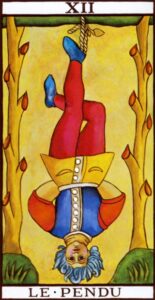Among the mature we do impart wisdom, although it is not a wisdom of this age or of the rulers of this age, who are doomed to pass away. But we impart a secret and hidden wisdom of God, which God decreed before the ages for our glorification. ~ 1 Corinthians 2:6-7
But I, brethren, could not address you as spiritual men, but as men of the flesh, as babes in Christ. I fed you with milk, not solid food; for you were not ready for it; and even yet you are not ready, for you are still of the flesh. ~ 1 Corinthians 3:1-3
The wise man will seek out the wisdom of all the ancients and will be occupied in the prophets and will enter withal into the subtleties of parables and will search out the hidden meaning of proverbs and will be conversant in the secrets of parables. ~ Thomas Aquinas, Rising Dawn
Paul could not pass on the solid doctrine to the Corinthians because they were not spiritually prepared for it. The doctrine itself is meaningless unless it fall on fertile soil, so it is with exoteric and esoteric teachings. It is not that the latter is the “true” meaning; rather, it represents a deeper understanding. A fundamental hermeneutic for spiritual texts is that they can be understood on four levels: the literal, allegorical, moral, and anagogical. The unprepared need not be concerned, as this passage explains:
Averroes was inspired by the idea that all minds have not the same degree of discernment: to some men the literal aspect, the zahir, is addressed, while others are capable of understanding the hidden meaning, the batin. He knew that if what only the latter can understand were revealed to the former, the result would be psychoses and social disasters. ~ Henry Corbin, Alone with the Alone
Science vs Esoterism

In the Introduction to Covenant of the Heart, Valentin Tomberg makes a distinction between scientific and esoteric knowledge. Regarding the former, he writes:
The scientific approach is not to strive simply for the truth, but rather to strive for that brand of truth which is of general validity, i.e., that which can be comprehended fundamentally by everyone bestowed with healthy understanding and faculties of perception, and which should thus be concurred with.
In other words, the scientific approach does not require an inner transformation. Anyone, who is competent, can read the words and pass a multiple choice test, for example. Regarding esoteric knowledge, he explains:
[it addresses] itself only to those people who are capable of the concentration and inner deepening necessary for intuition. … [it is] a matter for an elite group of special people.
He explains what that entails in Letter I: The Magician in Meditations on the Tarot:
All practical esotericism is founded on the following rule: it is necessary to be one in oneself (concentration without effort) and one with the spiritual world (to have a zone of silence in the soul) in order for a revelatory or actual spiritual experience to be able to take place. In other words, if one wants to practise some form of authentic esotericism — be it mysticism, gnosis, or magic — it is necessary to be the Magician, i.e., concentrated without effort, operating with ease as if one were playing, and acting with perfect calm.
Those who are just reading the words, and they are beautiful, will be missing the most sublime meaning of the text. Unless the reader makes efforts toward inner transformation, starting with concentration and quelling the perturbations of the soul, he will miss the point. Tomberg explains that the book
is written — and could only be written — for those who have the capacity and disposition to make use of the faculty of intuition as the direct sense for truth. Thus, it is addressed to those “who have ears to hear and eyes to see.
Angelic Hierarchy
Like Averroes, Tomberg recognizes that few people are able to experience the Divine Light in its fullness. The task of the angelic hierarchy, therefore, is to attenuate the Light in a manner appropriate to each one as it descends through the hierarchy. The esoteric path then is to reverse course and ascend through the hierarchy. To quote:
Each lower rank of hierarchy is a “moon” in relationship to the “sun” of the rank above it.
The angels transmit the tumultuous, strong impulses of the archangels in a bearable form, suited to human individuals, i.e., in the form of the soft light of moral clarity.
The archangels adopt the radical, valid-to-all-mankind commandments and prohibitions of the principalities (archai) to suit the special characters and capacities of the various peoples, thereby protecting them from becoming over-pressured.
And something similar is effected by the principalities in relation to the powers (exusiai), the powers toward the virtues (dynamis), the virtues toward the dominions (kryriotetes), the dominions toward the thrones, the thrones toward the cherubim, the cherubim toward the seraphim, and the seraphim toward the eternal Trinity of God.

Leave a Reply